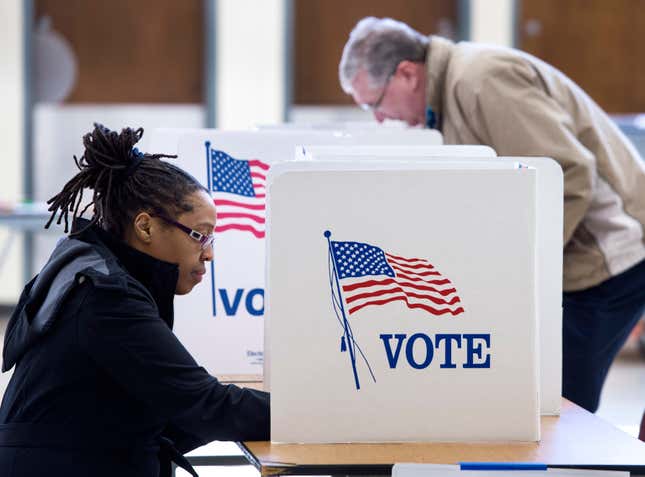Black Women Activists Warn Democrats After Abortion Failure: ‘Don’t Count on Our Votes’
Reproductive rights advocates of color wrote a scathing letter to Congress after it failed to end a federal ban on abortion coverage.
AbortionPolitics

For the time being, reproductive rights advocates’ long-time dream of ending the Hyde Amendment, a half-century-old budget rider that prohibits federal funding of most abortions, is dead in Congress, despite President Joe Biden’s campaign promise to get rid of it.
Since Hyde disproportionately affects pregnant people of color, and particularly Black and Indigenous people, Black reproductive justice advocates have responded to the failure with a resounding warning to Democratic members: “Defend Black women’s rights or don’t count on our votes.”
Marcela Howell, president of In Our Own Voice: The National Black Women’s Reproductive Justice Agenda, criticized Congress on Thursday for being “willing to sacrifice the reproductive health and rights of Black women.” She pointed out that just earlier this month, Congress failed to pass the Women’s Health Protection Act to codify Roe v. Wade. “Black women expect that the politicians we voted for will represent our interests and our rights,” Howell said in the statement. “We must hold our elected leaders accountable and demand that our rights are respected and our lives prioritized.”
-

-

-

-

-

-

-

-

-

-

-

-

-

-

-

-

-

-

-

-

-

-

-

-

-

-

-

-

-

-

-

-

-

-

-

-

-

-

-

-








































